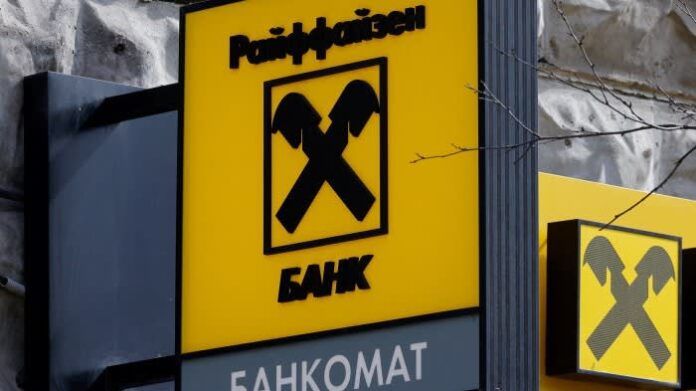Unlock the Editor’s Digest for free
Roula Khalaf, Editor of the FT, selects her favourite stories in this weekly newsletter.
The EU is preparing to lift sanctions on assets linked to Russian oligarch Oleg Deripaska in order to compensate Austria’s Raiffeisen Bank International for damages it had to pay in Russia, according to European officials.
Provisions to unfreeze shares worth about €2bn in Strabag, an Austrian construction company once part-owned by Deripaska, are included in the latest draft of the EU’s Russia sanction proposal, according to seven people familiar with the matter.
The assets would fall to Raiffeisen and compensate the bank for a €2bn fine it had to pay following a Russian court ruling in favour of a business linked to Deripaska, the officials said.
The sanctions were originally imposed because of Deripaska allegedly providing material support to “Russia’s military and industrial complex” in the full-scale invasion of Ukraine.
However, some European officials worry the move would legitimise oligarchs’ efforts to circumvent the EU’s sanctions against Russia, and bolster Russian courts that are retaliating against the sanctions by ordering the confiscation of western assets.
Ambassadors of several EU member states are expected to object to the move, which was initially proposed by Austria, at a meeting on Friday to discuss the new sanctions package, five of the officials added.
Raiffeisen is the western bank with the largest remaining presence in Russia following President Vladimir Putin’s full-scale invasion in 2022. But it has come under pressure from regulators and foreign governments to leave Russia like many other western businesses have done.
RBI has been trying to wind down operations in Russia. But Russian regulators are unwilling to let Raiffeisen leave because it is one of the country’s few remaining access points to the Swift international interbank payment system, according to people familiar with the matter.
A potential sale would probably lead to western sanctions against the bank and its owner, cutting it off from global markets.
The Austrian bank and Deripaska previously tried, and failed, to arrange a complex asset swap to unfreeze Deripaska’s 24 per cent stake in Strabag, held through his company Rasperia.
The deal ultimately fell apart over concerns that it would circumvent EU sanctions. The EU and the US later sanctioned another oligarch, Dmitry Beloglazov, and several entities that were involved. Deripaska had sold Rasperia, including the frozen Strabag shares, to Beloglazov.
Rasperia has since taken Raiffeisen to court in Russia, where the Austrian lender was forced to pay €2bn in damages. The court also ordered the transfer of the Strabag shares to Raiffeisen.
Raiffeisen said in January that the verdict had “no binding effect in Austria and the transfer of shares is therefore not enforceable”. It also noted that “Rasperia’s STRABAG SE shares are subject to an asset freeze under EU sanctions which also currently prevents their transfer.”
The proposal under discussion in Brussels would now allow Raiffeisen to take ownership of the sanctioned shares, in effect enforcing the Russian court’s decision.
Officials argue that this legitimises Russian courts clawing back sanctioned assets through confiscation, and could encourage other oligarchs to pursue the same approach.
“It may set a convenient precedent for Russian entities to indirectly recover their frozen funds through the confiscation of the assets of subsidiaries of EU companies still operating in Russia,” one diplomat said.
Another said that this would “pay for Raiffeisen’s own risk [taking]” by deciding to continue operating in Russia.
Proponents of the measure argue that it would prevent the sanctioned entity from receiving its money twice — via the court-ordered compensation, and when the assets are unfrozen once sanctions are lifted.
Raiffeisen declined to comment. The Austrian foreign ministry did not respond to a request for comment.
A spokesperson for Deripaska did not respond to a request for comment. Rasperia did not respond to a request for comment.


